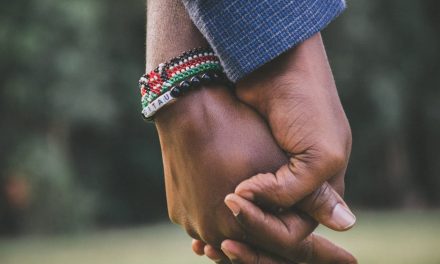Table of Contents
Leading the way to end human trafficking worldwide.
Introduction
Global Leadership in the Fight Against Human Trafficking
Human trafficking is a grave violation of human rights that affects millions of people worldwide. It is a complex and multifaceted issue that requires global cooperation and leadership to combat effectively. In recent years, there has been a growing recognition of the need for concerted efforts to address this heinous crime. This introduction will explore the importance of global leadership in the fight against human trafficking, highlighting the significance of collaboration, policy development, and resource allocation in tackling this global challenge.
The Role of International Organizations in Combating Human Trafficking

Human trafficking is a global issue that affects millions of people around the world. It is a form of modern-day slavery that involves the recruitment, transportation, and exploitation of individuals for various purposes, such as forced labor, sexual exploitation, and organ trafficking. In recent years, there has been a growing recognition of the need for global leadership in the fight against human trafficking. International organizations play a crucial role in combating this heinous crime and ensuring the protection of victims.
One of the key roles of international organizations in the fight against human trafficking is the coordination of efforts among different countries. Human trafficking is a transnational crime that often involves multiple countries, making it difficult to address through national efforts alone. International organizations, such as the United Nations (UN) and Interpol, facilitate cooperation and information sharing among countries, enabling them to work together to dismantle trafficking networks and bring perpetrators to justice.
Moreover, international organizations provide technical assistance and capacity-building support to countries in their efforts to combat human trafficking. Many countries, particularly those with limited resources and expertise, face significant challenges in addressing this complex issue. International organizations offer training programs, guidance, and resources to help countries develop effective strategies and strengthen their legal frameworks, law enforcement capabilities, and victim support services.
In addition to coordination and capacity-building, international organizations also play a crucial role in raising awareness about human trafficking. They conduct research, collect data, and produce reports that shed light on the scale and nature of this crime. These reports not only provide valuable insights into the dynamics of human trafficking but also serve as a wake-up call to governments, civil society organizations, and the general public. By disseminating this information, international organizations contribute to the global understanding of human trafficking and mobilize support for action.
Furthermore, international organizations advocate for the rights of victims and the implementation of comprehensive anti-trafficking policies. They work closely with governments to develop and enforce legislation that criminalizes human trafficking and protects the rights of victims. International organizations also advocate for the provision of specialized support services, such as shelter, healthcare, and legal aid, to help victims recover and reintegrate into society. By advocating for victim-centered approaches, international organizations ensure that the needs and rights of survivors are at the forefront of anti-trafficking efforts.
Lastly, international organizations facilitate international cooperation and dialogue on human trafficking through conferences, workshops, and other platforms. These events bring together policymakers, law enforcement agencies, civil society organizations, and survivors to share best practices, exchange ideas, and develop innovative solutions. By fostering collaboration and knowledge exchange, international organizations contribute to the development of a global response to human trafficking that is based on shared values and principles.
In conclusion, international organizations play a crucial role in the fight against human trafficking. Through coordination, capacity-building, awareness-raising, advocacy, and international cooperation, they contribute to the global effort to combat this heinous crime. However, it is important to recognize that the fight against human trafficking requires a multi-faceted approach that involves not only international organizations but also governments, civil society organizations, and individuals. Only through collective action can we hope to eradicate human trafficking and ensure a safer and more just world for all.
Effective Strategies for Global Collaboration in the Fight Against Human Trafficking
Effective Strategies for Global Collaboration in the Fight Against Human Trafficking
Human trafficking is a global issue that affects millions of people around the world. It is a crime that violates basic human rights and exploits vulnerable individuals for profit. In order to effectively combat this heinous crime, global collaboration and leadership are essential. This article will explore some effective strategies for global collaboration in the fight against human trafficking.
One of the key strategies for global collaboration is the sharing of information and intelligence. Human trafficking networks operate across borders, making it crucial for countries to work together and share information about traffickers, victims, and routes. This can be done through international law enforcement agencies, such as Interpol, as well as through bilateral agreements between countries. By sharing information, countries can better understand the scope and nature of human trafficking and coordinate efforts to dismantle trafficking networks.
Another important strategy is capacity building and training. Many countries lack the resources and expertise to effectively combat human trafficking. By providing training and technical assistance to law enforcement agencies, prosecutors, and judges, countries can strengthen their ability to investigate and prosecute traffickers. This can be done through partnerships with international organizations, such as the United Nations Office on Drugs and Crime (UNODC), which offers training programs and resources to help countries build their capacity to combat human trafficking.
Furthermore, victim-centered approaches are crucial in the fight against human trafficking. Victims of trafficking often suffer from physical and psychological trauma and require specialized support and assistance. By adopting victim-centered approaches, countries can ensure that victims receive the necessary care and support to recover and rebuild their lives. This includes providing access to medical care, legal assistance, and social services. Additionally, countries can establish mechanisms for victim identification and referral, ensuring that victims are identified and provided with the necessary support.
Public awareness campaigns are also effective in raising awareness about human trafficking and mobilizing public support. By educating the public about the signs of trafficking and the impact it has on individuals and communities, countries can encourage reporting and create a hostile environment for traffickers. These campaigns can be conducted through various channels, including social media, television, and community outreach programs. By engaging the public, countries can create a sense of collective responsibility and empower individuals to take action against human trafficking.
Lastly, international cooperation and coordination are essential in the fight against human trafficking. This includes cooperation between governments, non-governmental organizations, and civil society. By working together, countries can share best practices, coordinate efforts, and pool resources to combat human trafficking. International organizations, such as the United Nations and the International Organization for Migration, play a crucial role in facilitating this cooperation and providing a platform for dialogue and collaboration.
In conclusion, effective strategies for global collaboration in the fight against human trafficking include sharing information and intelligence, capacity building and training, victim-centered approaches, public awareness campaigns, and international cooperation and coordination. By implementing these strategies, countries can work together to dismantle trafficking networks, support victims, and ultimately eradicate this grave violation of human rights. It is only through global leadership and collaboration that we can hope to make a significant impact in the fight against human trafficking.
Promoting Awareness and Education on Human Trafficking Worldwide
Promoting Awareness and Education on Human Trafficking Worldwide
Human trafficking is a global issue that affects millions of people around the world. It is a crime that violates basic human rights and exploits vulnerable individuals for profit. In order to combat this heinous crime, global leadership is crucial in promoting awareness and education on human trafficking worldwide.
One of the key aspects of global leadership in the fight against human trafficking is raising awareness about the issue. Many people are unaware of the extent and severity of human trafficking, and it is important to educate the public about its various forms and the signs to look out for. By increasing awareness, individuals can become more vigilant and proactive in identifying and reporting potential cases of human trafficking.
Governments and non-governmental organizations (NGOs) play a vital role in promoting awareness and education on human trafficking. They can organize campaigns, workshops, and training sessions to educate the public, law enforcement agencies, and other relevant stakeholders about the different aspects of human trafficking. These initiatives can help dispel myths and misconceptions surrounding the issue and empower individuals to take action.
Furthermore, global leadership in the fight against human trafficking involves collaborating with international organizations and other countries. Human trafficking is a transnational crime that requires a coordinated response. By working together, countries can share best practices, exchange information, and develop strategies to combat human trafficking more effectively. This collaboration can also help in identifying and dismantling international trafficking networks.
Education is another crucial aspect of global leadership in the fight against human trafficking. It is important to educate individuals, especially vulnerable populations, about the risks and dangers associated with human trafficking. This can be done through school curricula, community outreach programs, and awareness campaigns targeted at high-risk groups such as migrants, refugees, and women and children in poverty.
In addition to educating potential victims, it is equally important to educate law enforcement agencies, healthcare professionals, and other frontline workers about human trafficking. These individuals are often in a position to identify and assist victims, but they may lack the necessary knowledge and training. By providing them with the right tools and resources, global leadership can ensure that victims receive the support and assistance they need.
Moreover, global leadership in the fight against human trafficking involves addressing the root causes of the problem. Poverty, lack of education, and social inequality are some of the factors that make individuals vulnerable to trafficking. By addressing these underlying issues, governments and NGOs can help prevent human trafficking from occurring in the first place. This can be done through poverty alleviation programs, access to quality education, and promoting gender equality.
In conclusion, promoting awareness and education on human trafficking worldwide is a crucial aspect of global leadership in the fight against this heinous crime. By raising awareness, educating individuals, collaborating with international organizations, and addressing the root causes of human trafficking, global leaders can make a significant impact in combating this global issue. It is only through collective efforts and a comprehensive approach that we can hope to eradicate human trafficking and ensure a safer and more just world for all.
Empowering Local Communities to Combat Human Trafficking
Human trafficking is a global issue that affects millions of people around the world. It is a form of modern-day slavery that involves the recruitment, transportation, and exploitation of individuals for various purposes, such as forced labor, sexual exploitation, and organ trafficking. In recent years, there has been a growing recognition of the need for global leadership in the fight against human trafficking.
One important aspect of this global leadership is empowering local communities to combat human trafficking. Local communities are often at the forefront of the fight against human trafficking, as they are the ones who are most directly affected by this crime. By empowering these communities, we can ensure that they have the resources and support they need to effectively combat human trafficking.
One way to empower local communities is by providing them with training and education on how to identify and respond to cases of human trafficking. Many individuals in these communities may not be aware of the signs of human trafficking or may not know how to report suspicious activities. By providing them with the necessary knowledge and skills, we can empower them to take action and help victims of human trafficking.
Another important aspect of empowering local communities is by providing them with the necessary resources and support to assist victims of human trafficking. Victims of human trafficking often require a range of services, including shelter, medical care, legal assistance, and psychological support. By ensuring that local communities have access to these resources, we can help victims rebuild their lives and break free from the cycle of exploitation.
Furthermore, empowering local communities involves fostering partnerships and collaboration between various stakeholders, including law enforcement agencies, non-governmental organizations, and community-based organizations. These partnerships can help to strengthen the response to human trafficking by sharing information, coordinating efforts, and pooling resources. By working together, we can create a more comprehensive and effective response to human trafficking.
In addition to empowering local communities, global leadership in the fight against human trafficking also involves advocating for stronger laws and policies at the national and international levels. Many countries have enacted legislation to criminalize human trafficking and provide support for victims. However, there is still much work to be done to ensure that these laws are effectively implemented and enforced. Global leaders can play a crucial role in advocating for stronger laws and policies, as well as providing technical assistance and capacity-building support to countries that are struggling to address human trafficking.
In conclusion, global leadership in the fight against human trafficking requires empowering local communities to combat this crime. By providing them with training, resources, and support, we can ensure that they have the tools they need to identify and respond to cases of human trafficking. Additionally, fostering partnerships and collaboration between various stakeholders can help to strengthen the response to human trafficking. Finally, advocating for stronger laws and policies at the national and international levels is essential to effectively combat human trafficking. By working together, we can make a significant impact in the fight against this heinous crime and help to protect the rights and dignity of all individuals.
Q&A
1. What is global leadership in the fight against human trafficking?
Global leadership in the fight against human trafficking refers to the proactive and influential role played by countries, organizations, and individuals in combating and addressing the issue of human trafficking on a global scale.
2. Why is global leadership important in the fight against human trafficking?
Global leadership is crucial in the fight against human trafficking as it helps coordinate international efforts, raise awareness, develop effective policies, and implement comprehensive strategies to prevent and combat this heinous crime.
3. What are some examples of global leadership initiatives in the fight against human trafficking?
Examples of global leadership initiatives include the establishment of international conventions and protocols, the creation of specialized task forces and agencies, the implementation of awareness campaigns, the provision of support and resources to affected countries, and the promotion of cooperation and collaboration among nations.
4. How can individuals contribute to global leadership in the fight against human trafficking?
Individuals can contribute to global leadership in the fight against human trafficking by supporting and volunteering with anti-trafficking organizations, advocating for stronger legislation and policies, raising awareness in their communities, reporting suspicious activities, and supporting survivors through donations or volunteering.
Conclusion
In conclusion, global leadership plays a crucial role in the fight against human trafficking. It requires collaborative efforts, strong political will, and effective policies to combat this heinous crime. By prioritizing prevention, protection, and prosecution, countries can work together to dismantle trafficking networks, rescue victims, and bring perpetrators to justice. Additionally, raising awareness, providing support to survivors, and addressing the root causes of trafficking are essential in achieving long-term solutions. Only through global leadership and collective action can we hope to eradicate human trafficking and ensure a safer and more just world for all.




